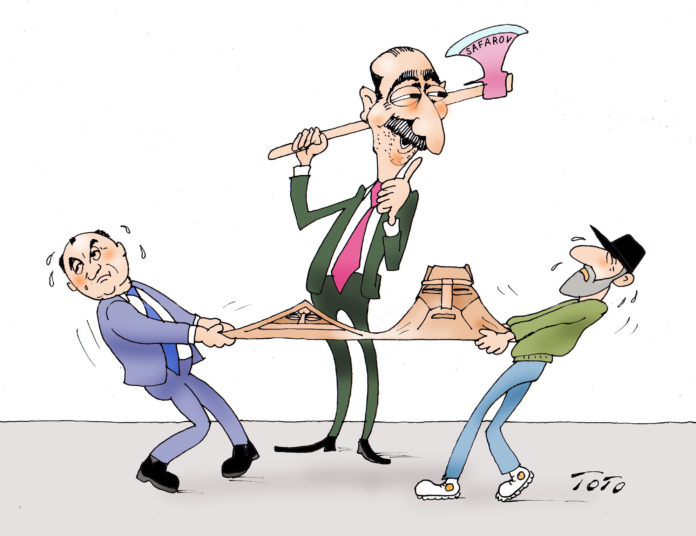Everyday a dramatic development takes place in Armenia’s domestic politics but all hell broke loose this weekend with the release of Robert Kocharyan, Armenia’s second president, who was incarcerated pending his trial. He stands accused of subverting Armenia’s constitution during the riots of March 1, 2008, when 10 people were killed, including two police officers.
The trial sessions had become a circus with the demonstrations and cheers of Kocharyan fans and jeers of his opponents. The trial sessions became also topics of heated discourse in the news media. It is ironic that no one has been questioning why there is so much attention on Kocharyan, when the Velvet Revolution had targeted Serzh Sargsyan (Merjeer Serjin — Refuse Serzh).
Indeed, the latter is free and active at the helm of his decimated Republican Party and planning his political comeback.
The Velvet Revolution had come and swept away the old guard monopolizing the political scene in Armenia. Some groups also tried to export the revolution to Karabakh (Artsakh) but cooler heads prevailed there, realizing the delicate and precarious situation in that territory. But that did not deter all the losing parties in Armenia’s last parliamentary election from trying their luck in Karabakh, by building their own power bases there. The movement began with a convention of the ARF (Armenian Revolutionary Federation, Dashnaktsutyun), which held its convention last February in Stepanakert, where the outgoing leader of the party, Hrand Markaryan, did not hesitate to state in his parting salvo that his party will wipe away Prime Minister Nikol Pashinyan’s Social Contract Party from power and take over the government to steer it away from its current course.
The ARF returned to Karabakh for a second time in May for a political powerplay by organizing a forum and inviting many other groups, including former prime minister and presidential candidate Vazgen Manukyan, who presided over the forum, the purpose of which was to generate public opinion to force the conclusion of a treaty between Armenia and Karabakh, featuring the first as a guarantor of the security of the latter. Never mind that the idea did not gain much traction, but that was beside the point, because the organizers intended to send a message that the party was alive and well even after losing the parliamentary elections.
Next on the stage was the former president, Serzh Sargsyan, who delivered his first political speech since his ouster from power.










